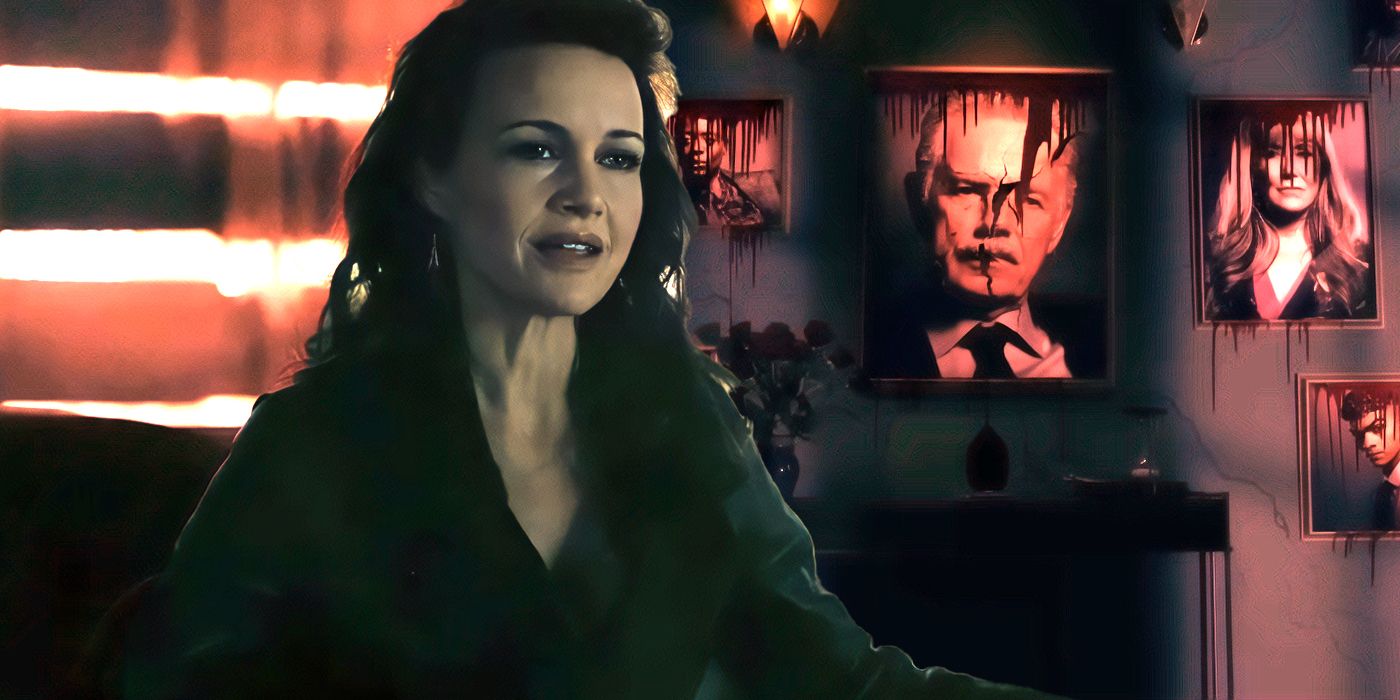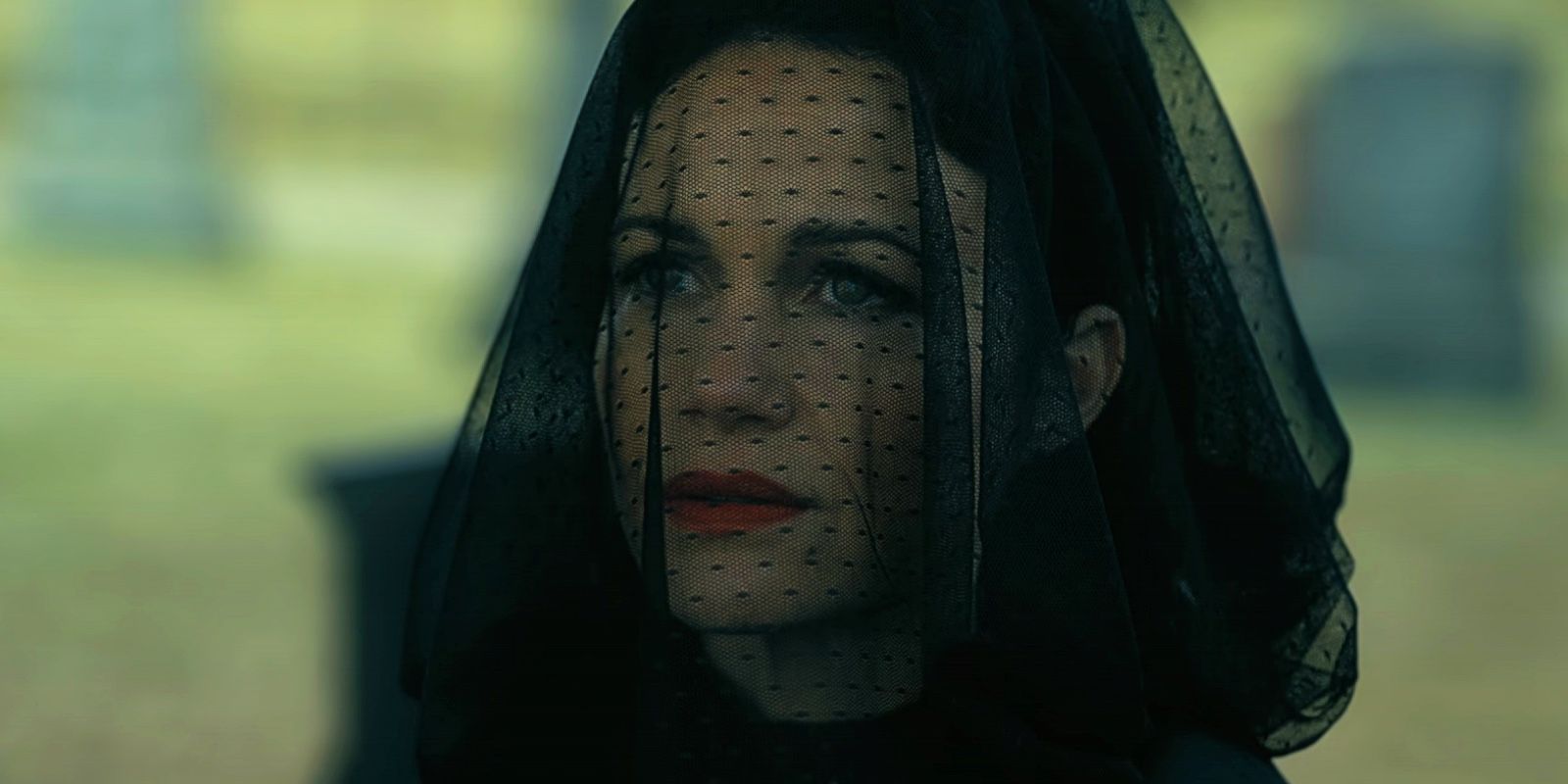Warning: SPOILERS lie ahead for The Fall of the House of Usher!
Summary
- Verna, the antagonist in The Fall of the House of Usher, may be depicted as evil, but is actually a shape-shifting character offering honest conversations to the privileged and powerful Usher family.
- Verna's deal with the Usher siblings ultimately leads to their deaths, but she is not the true villain. The Ushers' desire for wealth and success is what drives the tragic events in the show.
- Verna shows mercy to Lenore, Roderick's granddaughter, granting her a non-painful death and revealing the positive future her death will bring by creating a non-profit organization to help domestic abuse victims. Verna's intentions are not purely evil, but rather tied to fulfilling her contract with Roderick and Madeline.
Despite seemingly being the main antagonist for the show, Carla Gugino offers some clarification on The Fall of the House of Usher's family death deal. Created by The Haunting of Hill House's Mike Flanagan, the show acts as a loose adaptation of a variety of Edgar Allan Poe works, primarily centering on the family of a wealthy pharmaceutical company as they find themselves target by a mysterious woman with ties to their past. Featuring an ensemble cast led by both Flanagan vets and newcomers, the horror drama has garnered widespread critical acclaim, namely for Gugino's performance as she plays the shapeshifting character Verna.
Ahead of the show's premiere, Netflix spoke with Carla Gugino to break down her work in The Fall of the House of Usher. In explaining the complicated nature of her character, the Verna actor offered some clarification on her motives, indicating that "she's not even evil" and explaining that her deal leading to the eponymous family's deaths was more their own doing than hers and citing Poe's own non-religious storytelling as further proof of this. See what Gugino explained below:
Often, people with a lot of privilege and a lot of power have an opportunity to do good things or to do bad things. Poe never really believed in God and the devil per se. She’s not even evil. Verna is offering each of these people the most honest conversation they will ever have in their lives. She doesn’t really care if they’re good, they’re bad, they’re this, they’re that. The amazing thing when you see that kind of shape-shifting is that there’s an embodiment of something that can seem super radical or super intense, but what it comes back to always is this neutrality.
Why Verna Isn't The Real Villain of The Fall of the House of Usher
Not so secretly an anagram of raven, calling back to Poe's iconic poem and character, Verna is largely seen as the antagonist for The Fall of the House of Usher, appearing to each family member and tormenting them in regard to their various flaws. After appearing in flashbacks to Roderick and Madeline Usher's past, it's ultimately revealed that Verna is some form of supernatural deal maker, having offered the siblings the opportunity to achieve their wealth and career ambitions in exchange for their heirs living short lives and the two having to die at the same time at some point in the future.
While this does come to fruition throughout the show's run, with Flanagan adapting the likes of "The Pit and the Pendulum" and "The Murders in the Rue Morgue" among others, this reveal firmly establishes that Verna is not the true villain, but is rather the Usher siblings themselves. Even when confronted by the family's lawyer, Mark Hamill's Arthur Pym, later in the show, she does offer him a deal, but rather than retaliate when he declines, she leaves him be. Her various appearances to the Ushers also further cements their sins were not of their own doing, but rather came from Roderick and Madeline's desire to achieve the lots of wealth.
The only Usher to be given some kind of mercy by Verna in The Fall of the House of Usher is Kyliegh Curran's Lenore, Roderick's granddaughter who frequently tried to serve as a moral compass for her family. Though she does still ultimately take her life, Verna grants her a non-painful death of simply touching her finger to her forehead to take her life, which was preceded by the shapeshifting demon telling her of the positive future her death would bring as her mother would take the inheritance from Roderick's death to create a non-profit support organization for domestic abuse victims, which would in turn save millions of people in the future. Where Verna relished taking the rest of the Ushers' lives, there's a sheer heartbreak in her tone with Lenore, confirming to viewers her seemingly evil machinations are only part of fulfilling her contract with Roderick and Madeline.
Source: Netflix


